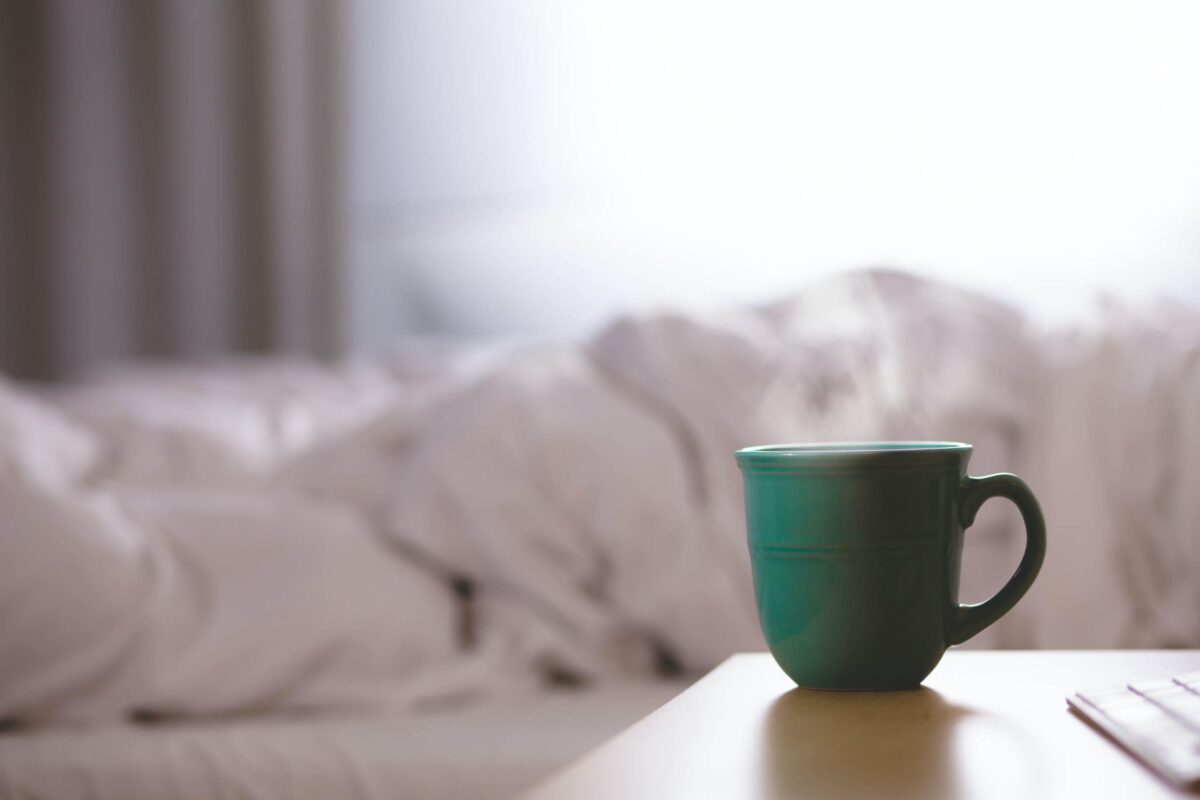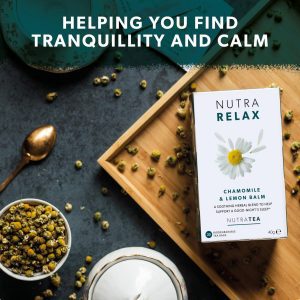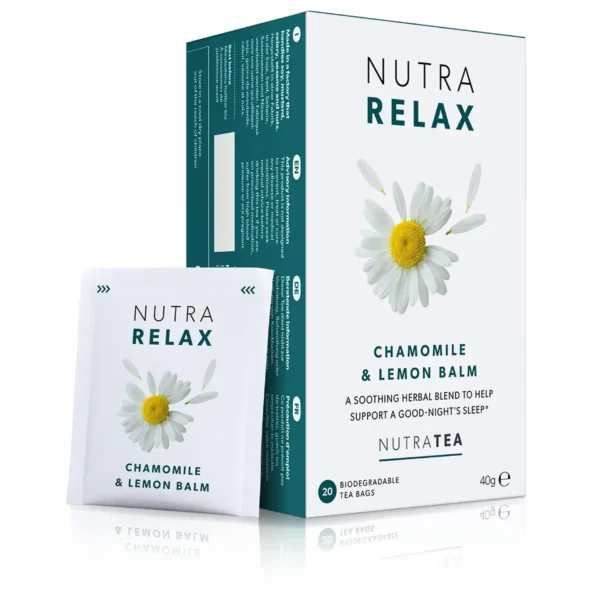NutraBlog
Can Herbal Teas Help You Sleep Better?

A good night’s sleep is vital to our health and wellbeing. But sometimes getting a peaceful 8 hours can be easier said than done. Could a cup of herbal tea be the answer to a better night’s sleep?
—
Everyone has trouble sleeping on occasion. But regularly going without a good night’s rest does more than just leave us feeling tired and irritable the next day.
It turns out that sleep is essential to a whole host of bodily functions. When we don’t get enough, we increase our risk of developing high blood pressure, gaining weight, and struggling with mental health issues like depression.
Sleep is also vital to keeping our immune systems strong and healthy. When we’re run down and tired, we’re more likely to get sick. Once we come down with an illness, we also need sleep to allow our bodies to fight off the infection.
Clearly, getting a good night’s rest should be a priority for us all. But knowing how important sleep is doesn’t mean we can always drop off easily.
Stress, anxiety, and (ironically) overtiredness can all prevent us from falling asleep quickly or from staying asleep once we do manage to drift off. Too much time on screens or an irregular schedule can also disrupt our sleep patterns.
Fortunately, there are a few things we can do to increase our chances of getting a peaceful night. Some of the most basic include having a set bedtime and wake-up time, avoiding screens in the evening, and making sure we create a comfortable sleeping environment.
Another step many people try to help themselves get the rest they need is drinking a cup or two of herbal tea in the evening. But can herbal teas really help you sleep better?
How Do Herbal Teas Help with Better Sleep?
There are a few ways that herbal teas can help you get a better night’s sleep. Firstly, making and drinking a cup of tea is itself a calming ritual that can help you relax and get ready to drift off to dreamland. When you do it every night, your body and mind soon begin to associate the tea with bedtime, which sends the signal that it is time to wind down and go to sleep.
But any calming activity in the evening could have this effect. What makes herbal tea especially good for falling asleep?
A lot of that is down to the herbs themselves. Many act as natural, mild sedatives, promoting relaxation and sleep. Herbs like chamomile, lemon balm, lavender, and passionflower all contain active compounds that bind to receptors in our brains and affect the release of various neurotransmitters, making us feel ready to sleep.
Many herbs are also known for their ability to reduce stress and anxiety. Often, these feelings interfere with our sleep, so drinking a herbal tea blend that has this calming effect can help us to sleep better.
As well as helping us drift off in the first place, many of the herbs used in bedtime tea blends can improve our sleep quality and duration. So, if your issue is more that you can get to sleep easily but wake up in the middle of the night, a cup of the right herbal tea could still help.
When Should I Drink Herbal Tea for Sleep?
We’re tea enthusiasts, so there’s no time of day that we wouldn’t indulge in a comforting mug of herbal tea. However, if your main aim is to get a better night’s sleep, you probably want to have at least one of those mugs in the evening.
There’s a bit of a balance to strike here. While drinking herbal tea before bed might help you sleep better, you don’t want to find that you’re waking up needing to go to the bathroom. It’s best to leave about an hour between finishing your cup and switching off the lights, so the tea has time to take effect and you can empty your bladder before bed.
We also recommend making herbal tea part of a calming evening routine. Having set activities that you carry out in the hour or so before bed can help you relax and unwind so that it is easier to fall asleep. Switch off the screens, turn the lights down low, perhaps have a warm bath, read a book, or do some gentle stretching.
If you are still struggling to drop off, you might need to look at the rest of your day too and think about making some changes. For example, if you’re a fan of caffeinated drinks, you could try limiting these to the mornings and switch to herbal tea after lunch instead.
What Is the Best Tea to Drink at Night?
The best herbal teas to drink before bed are those that have the calming, sedative effect we talked about earlier. There are plenty of options to try. Some of the best include:
- Chamomile
Chamomile is well-known for its soothing properties. As well as combatting anxiety and stress, chamomile contains a compound called apigenin, which acts as a mild, natural tranquillizer. Various studies have found that drinking chamomile tea improves sleep quality.
- Lemon Balm
Like chamomile, lemon balm is a calming herb that helps to relieve anxiety. It’s a great option for restless sleepers. If your brain seems to be racing and you struggle to switch off at night, lemon balm may help.
- Passionflower
Traditionally Passionflower used as a sedative and a treatment for insomnia, passionflower is another good choice for those looking for a better night’s sleep. It contains apigenin and other flavones that help us to fall asleep quicker and stay asleep for longer.
- Lavender
Lavender is popularly used in aromatherapy, but you can also drink this sleep-promoting herb in a tea. A natural sedative, it helps relax and calm the body and mind ready for bed. It is also a natural painkiller, so if you have aches and pains that are keeping you awake, a herbal tea blend with lavender might help.
- Hawthorn Berry
Perhaps better known for its ability to support our hearts and cardiovascular systems, hawthorn is also used as a traditional herbal treatment for stress and anxiety. It appears to calm the nervous system, making it an ideal herb to incorporate into a bedtime herbal tea blend.
Our Herbal Tea Blend for Sleep
NutraRelax is our own herbal tea for sleep and relaxation. Packed with herbs like chamomile, lemon balm, passionflower, lavender, and hawthorn berry that calm anxiety and promote sleep, it is a delicious and comforting tea to incorporate into your bedtime routine.


